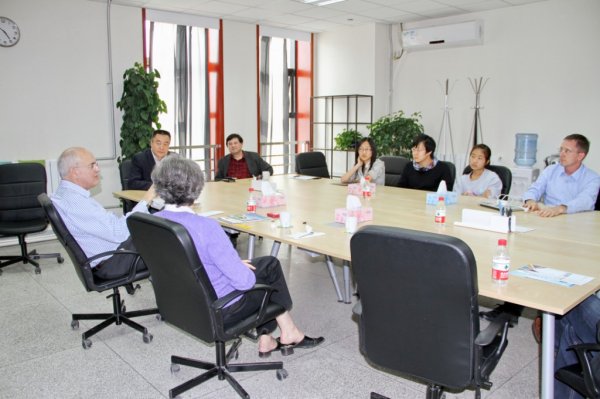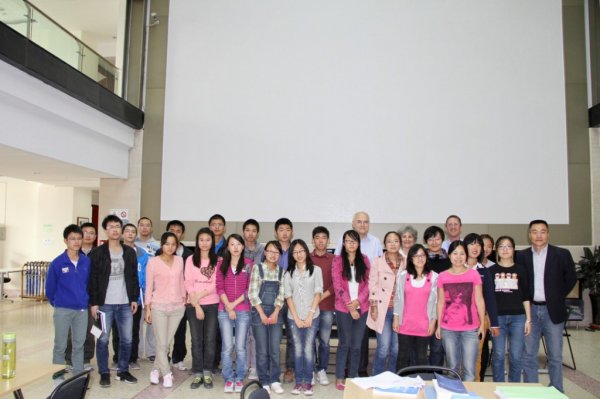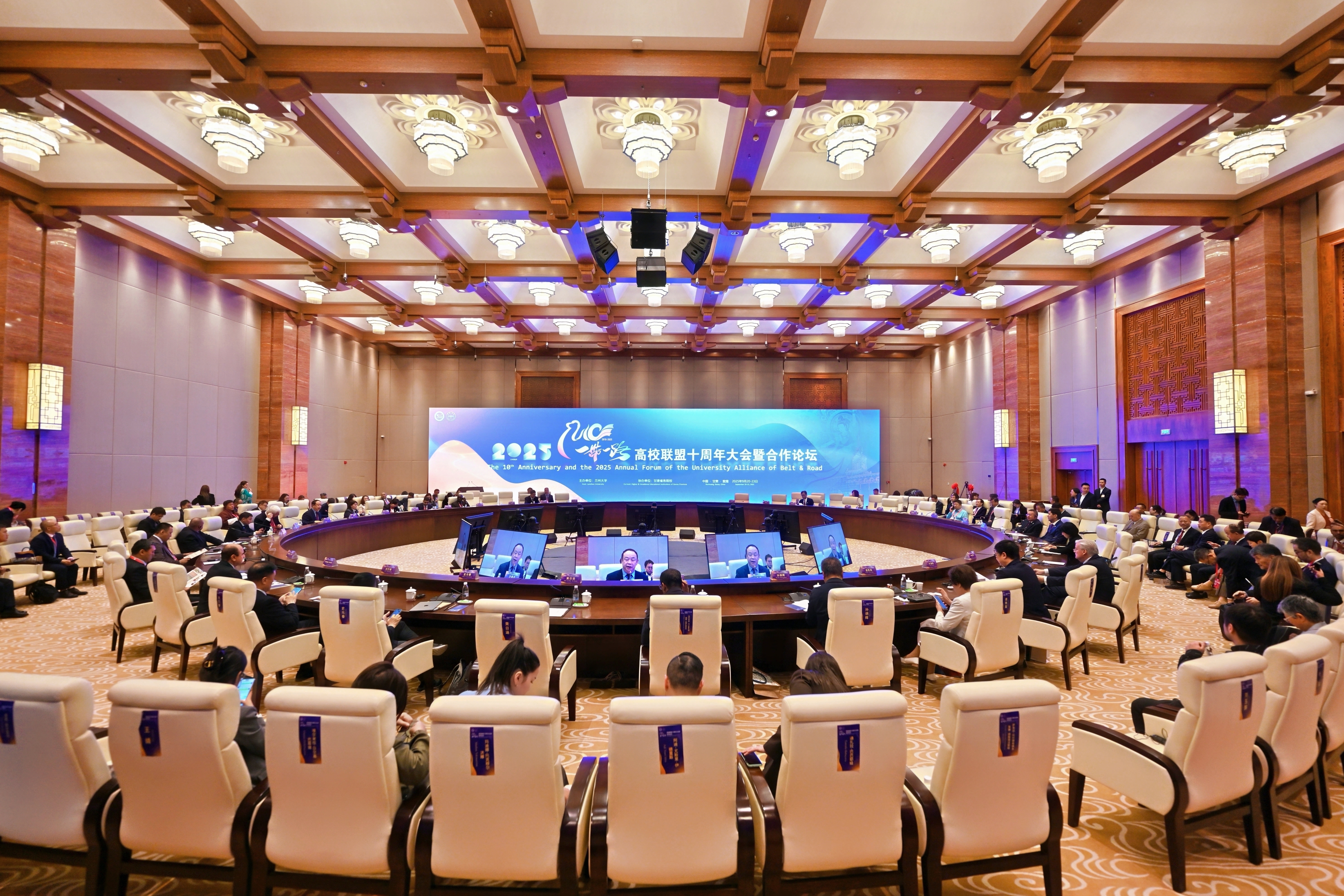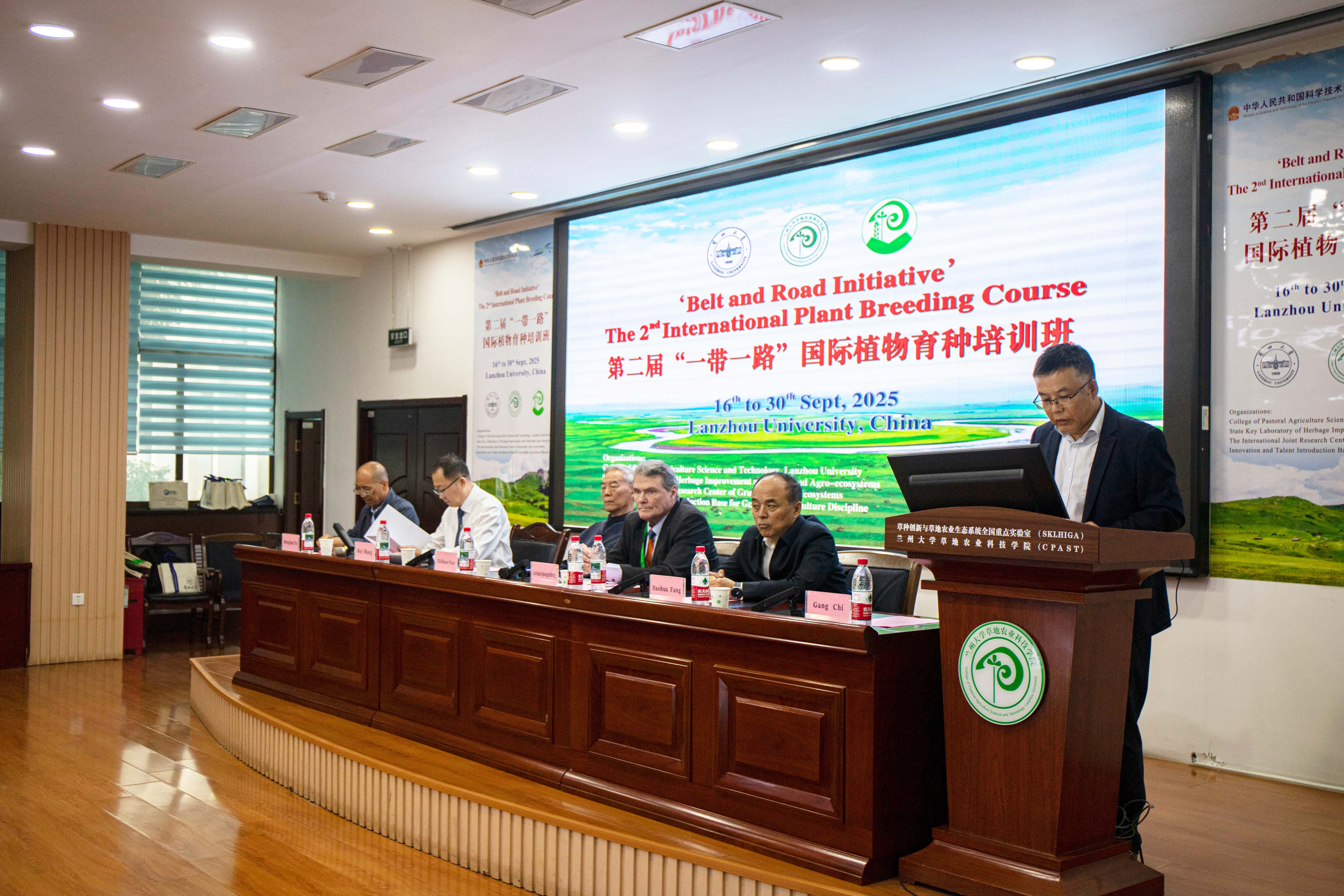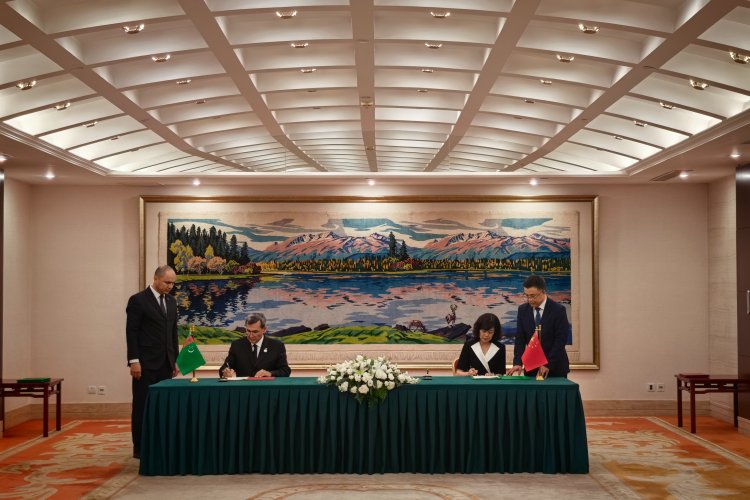
Students gathered on Sunday afternoon 29th September in the Cuiying Honors College lecture hall of Lanzhou University to listen to Edward Aust, a Canadian lawyer with a career in the private and public sectors, give an inspiring lecture about education, culture and innovation.
Mr. Aust and his wife have been visiting Gansu Province since 1997 as Foreign Experts. For his contribution to the economic and social welfare of Gansu, he was presented the Dunhuang Award in 2004. His experience includes having led national and regional inquiries into the health and safety of workers, the process of determining compensation in the Royal Canadian Mounted Police and the behavior of the administration of a major university. Mr. Aust is presently a visiting professor at the School of Economics and Management in the Tsinghua-MIT International MBA Program in Beijing. His course is Organizational Innovation and Analysis from a Multi-disciplinary Perspective.
By way of self-introduction, Mr. Aust started by talking about the important role of mentors. He referred to the inspiration and benefit he and his wife Claire Laporte, an artist, had received from the famous constitutional lawyer, poet and founder of the socialist political party in Canada (CCF_NDP) Frank R. Scott and his wife, Marian Dale Scott, a well-known artist.
With this short-autobiography he also made the point that the value of an education is learning how to learn. The freedom of explicit knowledge from the Internet is changing the face of university education. Like Sir Ken Robinson, he believes universities must offer added value besides theoretical courses, foster creativity through, for example experience-based programs that balance their learning and confidence, providing something more than they can get online. He gave the example of the new X-lab at Tsinghua University where students are gaining tacit knowledge by actually solving problems, testing their theoretical knowledge and, as entrepreneurs, innovating new businesses.
He talked to us about how learning a foreign language and culture can give you a different perspective from which to observe your own culture, and referred to recent scientific research to the effect that learning language later in life actually changes the physical qualities of the brain.
He also talked to us about how cultures change, whether in a company, organization or country, and why they sometimes don’t change or have difficulty adapting to new contexts. He stated that we behave a certain way because of our beliefs and assumptions, and so to change the culture, we have to gradually change the way people think.
He told us that it in many places women are less represented at senior decision-making levels, but that there was evidence (from the World Happiness Report), indicating that people are happier in places where there is the most gender equality. He said that men, because of their greater aggression, can deny the benefits of having the full participation of women’s thinking, which is different but complementary, especially with respect to an organization’s emotional health.
After the lecture, a third year Cuiying Honors College Chemistry student Qi Yue, asked how Chinese students can avoid the pitfall of studying a major that they don’t really enjoy. Mr. Aust said that he believes many students are too young when they chose their major. He encouraged students to take a year or two before they go to university to try several jobs to develop self-knowledge of where their abilities and interests lie. He said that although sometimes we may encounter barriers on the way to our dreams, it is important to look upon our own mistakes as opportunities to improve our self-knowledge. Perseverance plays an important and crucial role in innovation. This cannot be emphasized enough. Keep busy, learn new things and keep going.
After the lecture Edward and his wife, Clare, joined us for coffee, and talked freely with students.
